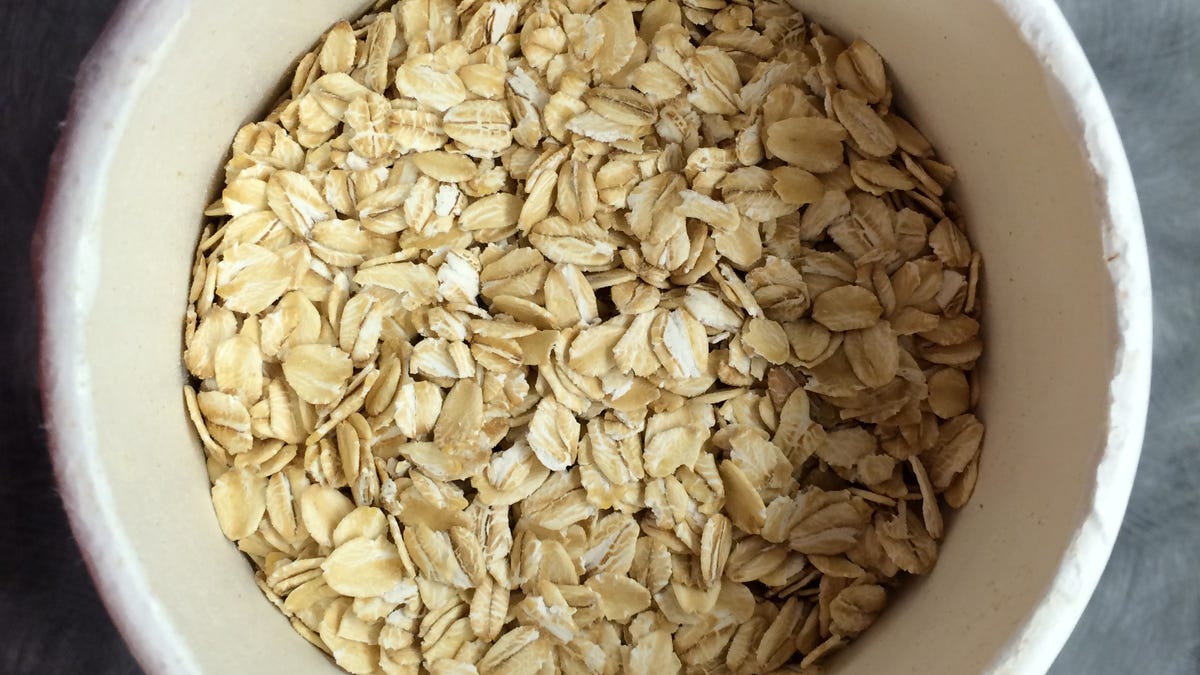Not sleeping so well? Eating fiber might help
Want to keep your eyes shut throughout the night? Watch what you put into your mouth all day long, says a new study.

Sleeping pill? New research says that increasing your fiber intake can increase the quality of your shut-eye.
It's long been believed that certain foods correlate to a better night's sleep, with many health publications offering suggestions for what to eat to increase your odds of sleeping well.
And while high-fiber foods routinely show up on those lists, a new study published in the January issue of the Journal of Clinical Sleep Medicine zeroes in the specific impact of fiber on sleep, saying it leads to deeper, more restorative rest. The study also suggests more saturated fats and sugar consumed throughout the day have the opposite effect.
The study out of Columbia University associates a higher fiber intake with more time spent in a dreamless deep stage of sleep known as slow-wave sleep.
"Our main finding was that diet quality influenced sleep quality," principal investigator Marie-Pierre St-Onge said in a statement. St-Onge is assistant professor in the department of medicine and Institute of Human Nutrition at Columbia University Medical Center in New York.
Most surprising, she added, was that just one day of greater fat intake and lower fiber could influence slow-wave sleep.
It's been known that a variety of fiber-rich foods can assist with sleep, but not necessarily for their fiber content alone. Tart cherries, for example, might have sleep-assisting melatonin in them. Whole grains like bulgur and barley contain magnesium, and without enough of that element, sleep troubles could arise. Fiber-rich chickpeas contain vitamin B6, a precursor to melatonin.
In this study though, the researchers looked at the impact of fiber regardless of the form in which it was ingested. They also looked at how sugary foods and those high in saturated fats messed with the sleep cycle.
Given their findings relating diet with sleep, it's not surprising that the researchers discovered that subjects slept better when their meals were prepared by a nutritionist who took the sleep-food link into consideration. "It took participants an average of 29 minutes to fall asleep after consuming foods and beverages of their choice, but only 17 minutes to fall asleep after eating controlled meals," says a report on the research.
In conducting their study, the researchers tracked the food intake and sleep patterns of 26 "normal weight" adults aged 20 to 45 years over the course of five nights in a sleep lab.
It's a small sample, to be sure, and the researchers say future studies are needed to evaluate their findings. Nonetheless, given abundant research indicating that poor sleep can lead to everything from hypertension to cardiovascular disease, the results sure seem like another good reason to do what you've already been told to do. Fill your day with whole grains, fruits and vegetables and steer clear of too much sugar and saturated fats.
Now, go have a bowl of oatmeal and sleep tight.

